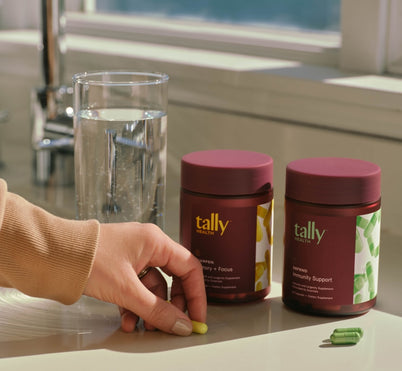

When was the last time you did something you enjoyed just for the pure fun of it? With the everyday demands of adulthood, the concept of play may seem like a luxury afforded only to children; however, a growing body of research is shedding light on the significance of play beyond childhood for both our physical health and mental health, emotional well being, and life satisfaction. Research shows that play is beneficial for people of all ages, supporting development and well-being throughout life. Play is an important part of life for adults as well, yet most adults do not prioritize play nearly as much as they should.
It turns out that play is a powerful tool for adults to stimulate creativity, reduce stress, and foster connections that extend beyond the playground. One key benefit of play for adults is its positive impact on mental health and resilience. Beyond that, in times of difficulty and uncertainty, play can help us better problem-solve, remain adaptable, and help us better cope with challenges [1].
Let’s delve into the world of play, uncovering the reasons why this lighthearted activity should have a more serious role in our lives.
Did you know that mental health and social satisfaction plays a role in how we age? Benchmark and track the way you age as you make changes to your lifestyle, environment, and habits with the epigenetic TallyAge Test by Tally Health.
Play your way to a healthier life

While play during childhood holds a crucial role in facilitating optimal brain development and supporting child development, the significance of play doesn’t diminish in adulthood; rather, it takes on a new form. Play is essential for developing social, emotional, cognitive, and physical skills throughout life. For both children and adults, play helps develop problem-solving abilities, social skills, and emotional resilience. Additionally, play is a vital component of learning, supporting ongoing growth and adaptation at every age. Beyond its formative neurological impact, adult play holds distinct importance for a variety of reasons:
Building deeper connections
Whether through a recreational swim team or hosting a weekly game night, play is a way for us to connect and engage with others, especially when playing with a friend to build relationships. Research also shows that shared play with a partner can enhance bonding and provide a safe environment to connect with and better relate to your partner [2]. Humor and shared laughter during play can strengthen bonds and create a positive, trusting atmosphere. When people laugh together through playful activities, it deepens their connection and supports emotional resilience. Play also helps adults develop and refine social skills, such as communication and cooperation, which are essential for healthy relationships. Additionally, play allows adults to process and express their feelings in a safe environment, supporting emotional well-being.
Improving brain function
From playing Sudoku to kicking butt in chess, puzzle-like activities can challenge your brain and stimulate our brains, warding off age-related cognitive problems while keeping your memory sharp [3].
Additionally, play can spark imagination and creative thinking, helping to foster mental development and problem-solving skills.
Reducing stress
Pure, unadulterated play also releases endorphins, or “feel good” chemicals that reduce stress, relieve stress, and improve your mood and well-being. Play helps adults build coping skills for managing life's challenges. When you are feeling stressed, engaging in play can provide a fun way to reduce tension and promote a relaxed environment. Additionally, play may help reduce anxiety in adults. Through the release of endorphins, play may also temporarily alleviate pain [4].
Boosting energy
Whether spending the day outside gardening or tackling a new hike with friends, play can also help us get up and move, keeping us active and providing important benefits for our health. Physical activity, as a form of play, is essential for maintaining both mental and physical health. Engaging in play not only boosts energy but also supports overall physical well-being.
Enhancing resilience
Adults who were considered more playful and energetic, and who were actively engaged in play, also possessed better coping mechanisms. Engaging in playful activities is important for building resilience, as it encourages exploration and emotional healing. Playful adults tend to have better coping mechanisms and greater resilience. If you’re dealing with stress, finding more moments of play could provide relief [5].
Where longevity comes into play

George Bernard Shaw once said, “We don’t stop playing because we grow old; we grow old because we stop playing.” Shaw may have been onto something. We have seen how play can reduce stress, increase happiness, improve social satisfaction, and boost activity levels, which have all been shown to support a longer, healthier life [6, 7, 8, 9].
Incorporating play into your job can make you more productive and increase your job satisfaction. Employees who lack recreation and play can suffer from decreased well-being and lower work quality. Scheduling playtime throughout the week is important for maintaining good health and balance. Activities like yoga are great examples of playful practices that support well-being.
Studies have also shown that happiness and life satisfaction were associated with reduced inflammation, better immune functioning, lower blood sugar, and even longer telomeres (caps at the end of DNA strands associated with cellular aging) [10].
Play your way: Incorporate play into your day

Incorporating more play into your busy adult routine might seem enticing, but how can you actually achieve it? Here are some practical tips for incorporating play into your daily routines. For example, you might turn your morning commute into a playful experience by listening to a fun podcast or playing a word game. Remember, play is not defined by specific actions or words, but by your attitude and engagement in the moment. Take the opportunity to create your own playful experiences, whether that's starting a new hobby or organizing a game night with friends. Engaging in playful activities can lead to greater well-being, creativity, and stronger relationships. Simple ways to incorporate more playfulness into your life include:
Pursue passion projects
Incorporating more play into your busy adult routine might seem enticing, but how can you Identify activities or interests that ignite your curiosity—just as kids naturally engage in play to explore the world around them. Not sure what you like to do? Channel your inner child and think back to what you loved to do as a kid. Did you climb trees? Sign up for a rock-climbing gym. Loved coloring? Take a painting class. Remember, child play is not only essential for development but can also inspire meaningful adult passion projects by reconnecting you with creativity and joy.
Set time aside for playful behaviors
Set aside periods of free time, even just 5-15 minutes a day, where you can explore hobbies, daydream, or engage in spontaneous activities like an impromptu dance party in your living room without a set agenda. Setting aside this time helps you enter a play state, where you feel enjoyment, engagement, and a sense of freedom. Try to schedule playful activities several times a week to make play a regular part of your routine. Even mundane tasks, like cleaning or yard work, can become opportunities to bring playfulness into everyday life.
Play well with others
Organize regular social gatherings or game nights with friends and family, including organizing games to foster connection and engagement. Participating in enjoyable activities during these gatherings can significantly enhance well-being and life satisfaction. It’s the perfect way to boost social satisfaction while also enjoying some much-needed playtime. For example, putting away clothes or toys together can be turned into a playful group activity, making everyday tasks more fun and interactive.
Get out and plan
Engage in physical activities that bring joy, whether it’s dancing, playing a sport, biking through nature, or even throwing a ball or frisbee as a playful action. If physical activities are done out of pure enjoyment and not to lose weight or get fit, then it’s considered play.
Try creative forms of movement or play, such as improvisational dance or inventing new games, to keep things fresh and exciting. Staying active in playful pursuits not only boosts your physical health but also enhances your overall well-being. Consider your unique play personality—whether you enjoy storytelling, movement, or games—to help you find the most enjoyable and engaging activities.
Embrace your inner child, unlocking moments of play that fuel increased activity, deeper connections, and a vibrant spirit of curiosity. Play your way to a healthier, longer life.
Why is play important for adults?
Play supports mental health, creativity, stress reduction, social connection, and overall well-being in adulthood.
What are some ways adults can incorporate more play into their lives?
Adults can pursue hobbies, schedule playful breaks, organize game nights, engage in physical activities for fun, and revisit childhood passions.
How can play improve brain function?
Activities like puzzles or games stimulate the brain, enhance memory, encourage creative thinking, and may help prevent age-related cognitive decline.
Recommended Supplements
Citations
[1] Playcore. (2023, August 10). Play is a universal gift of nature in times of challenge and stress. Retrieved from https://www.playcore.com/news/play-is-a-universal-gift-of-nature-in-times-of-challenge-and-stress
[2] Vleet, M. V., Helgeson, V. S., & Berg, C. A. (2019). The importance of having fun: Daily play among adults with type 1 diabetes. Journal of social and personal relationships, 36(11-12), 3695. https://doi.org/10.1177/0265407519832115
[3] Fissler, P., Küster, O. C., Loy, L. S., Laptinskaya, D., Rosenfelder, M. J., & Kolassa, T. (2016). Jigsaw Puzzles As Cognitive Enrichment (PACE) - the effect of solving jigsaw puzzles on global visuospatial cognition in adults 50 years of age and older: Study protocol for a randomized controlled trial. Trials, 18. https://doi.org/10.1186/s13063-017-2151-9
[4] Sprouse-Blum, A. S., Smith, G., Sugai, D., & Parsa, F. D. (2010). Understanding Endorphins and Their Importance in Pain Management. Hawaii Medical Journal, 69(3), 70-71. https://www.ncbi.nlm.nih.gov/pmc/articles/PMC3104618/
[5] Cale D. Magnuson & Lynn A. Barnett (2013) The Playful Advantage: How Playfulness Enhances Coping with Stress, Leisure Sciences, 35:2, 129-144, DOI: 10.1080/01490400.2013.761905
[6] Harvanek, Z. M., Fogelman, N., Xu, K., & Sinha, R. (2021). Psychological and biological resilience modulates the effects of stress on epigenetic aging. Translational Psychiatry, 11(1), 1-9. https://doi.org/10.1038/s41398-021-01735-7
[7] Lee LO, James P, Zevon ES, Kim ES, Trudel-Fitzgerald C, Spiro A 3rd, Grodstein F, Kubzansky LD. Optimism is associated with exceptional longevity in 2 epidemiologic cohorts of men and women. Proc Natl Acad Sci U S A. 2019 Sep 10;116(37):18357-18362. doi: 10.1073/pnas.1900712116. Epub 2019 Aug 26. PMID: 31451635; PMCID: PMC6744861.
[8] Holt-Lunstad J, Smith TB, Layton JB (2010) Social Relationships and Mortality Risk: A Meta-analytic Review. PLoS Med 7(7): e1000316. doi:10.1371/ journal.pmed.1000316.
[9] Guan, Y., & Yan, Z. (2022). Molecular Mechanisms of Exercise and Healthspan. Cells, 11(5). https://doi.org/10.3390/cells11050872
[10] Diener E, Pressman SD, Hunter J, Delgadillo-Chase D. If, Why, and When Subjective Well-Being Influences Health, and Future Needed Research. Appl Psychol Health Well Being. 2017 Jul;9(2):133-167. doi: 10.1111/aphw.12090. PMID: 28707767.











